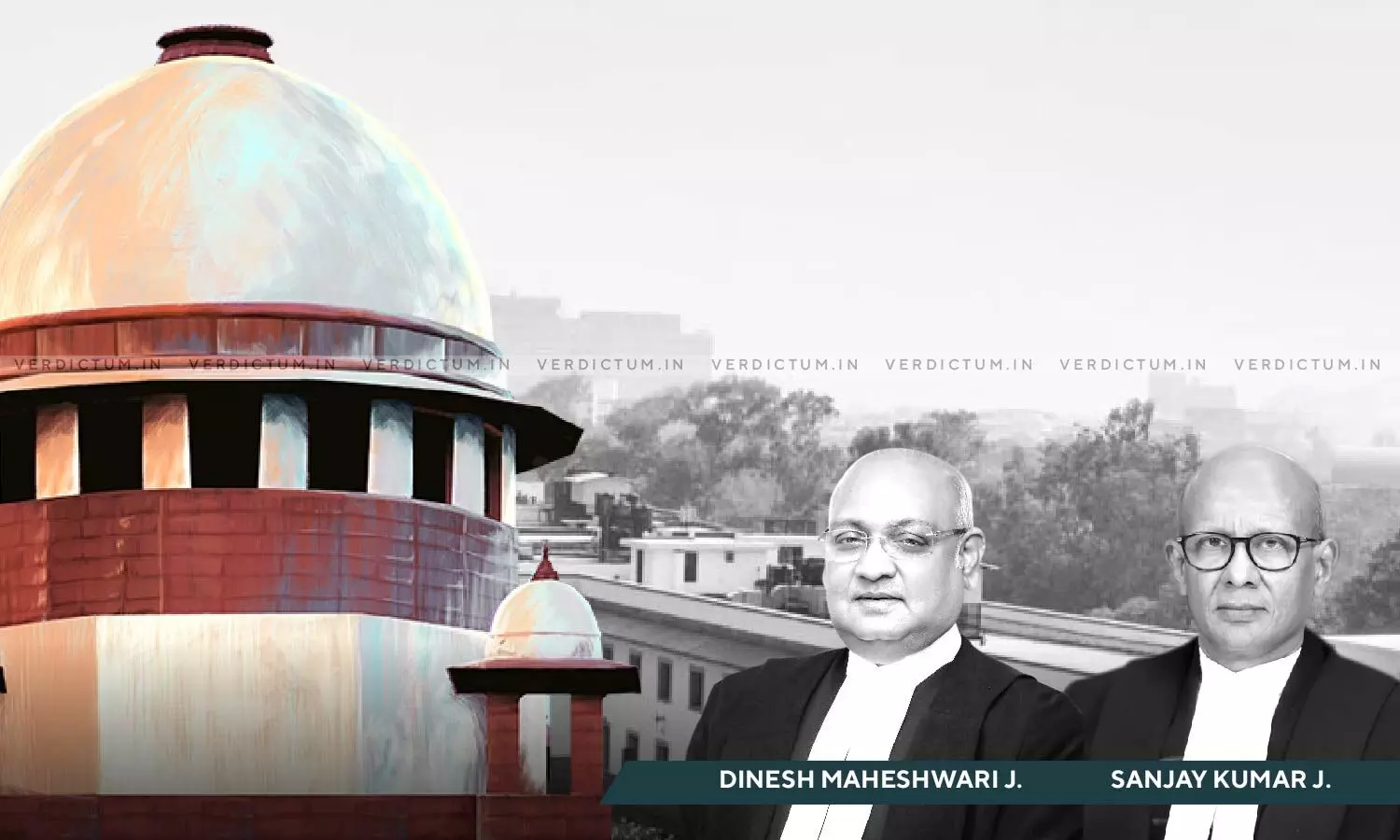
Delhi Rent Control Act: High Court Has Gone Far Beyond Scope Of Revision U/s. 25-B(8): SC Restores Order Of Rent Controller
 |
|The Supreme Court while restoring the order passed by the Rent Controller said that the High Court had gone far beyond the limited scope of revision in terms of Section 25-B(8) of the Delhi Rent Control Act, 1958. The Court was deciding a matter wherein the High Court had reversed the orders of eviction.
The two-Judge Bench of Justice Dinesh Maheshwari and Justice Sanjay Kumar held, “Having examined the present matters in totality, we are constrained to observe that the High Court has gone far beyond the limited scope of revision in terms of Section 25-B(8) of the Act of 1958. A bare look at the consideration of the High Court in the orders impugned makes it clear that the so-called want of clear description of the suit premises as also the identification and extent of the property available with the family has formed the principal consideration of the High Court.”
The Bench said that it cannot endorse the approach of the High Court and that the appellant gave out a detailed description of the extent of accommodation available in the suit property as also the accommodation presently in her occupation and the nature and extent of her requirement.
Advocate Sagar Saxena appeared on behalf of the appellant while Advocate Sibo Sankar Mishra appeared on behalf of the respondent.
In this case, a batch of appeals was directed against the Delhi High Court which allowed the revision petitions filed by the respective tenants and reversed the orders by the Court of ACJ-cum-CCJ-cum-ARC. The Rent Controller had accepted the petitions for eviction filed by the appellant against the respective tenants, on the ground of her bona fide requirement.
However, the High Court reversed the decision of the Rent Controller, essentially on the ground that the appellant i.e., the landlord had not been forthright in the description of the property in question and had taken the pleadings in a misleading manner about the facts concerning right, title and interest of the wife of his brother-in-law in the property in question and about the fact that the building was constructed on two adjoining plots as a common superstructure.
The Supreme Court after hearing the contentions of the counsel asserted, “… impugned orders cannot be sustained and the orders of eviction as passed by the Rent Controller deserve to be restored in these cases. … The appellant-landlord is said to be a widowed lady having no issues of her own but residing with her brother-in-law and other members of the family including the wife and children of her brother-in-law. The appellant-landlord is said to have acquired title to the property in question on being transferred by her brother-in-law; and has sought eviction of the respective tenants from suit premises on the ground that the premises were required bona fide by her for use and occupation of herself and the other members of her joint family.”
The Court further noted that the appellant made the position clear in her cross-examination that the building in question was constructed on plots jointly and she and her sister-in-law were residing in the same building as one family.
“… it is clear that there had not been any such misdescription of the property which would amount to a material flaw in the case of the appellant or which could have caused prejudice to the respondents-tenants. … we need not elaborate on the other aspects as to whether the members of the family of the brother-in-law of the appellant could be taken as her dependents for the purpose of the eviction in terms of Section 14(1)(e) of the Act of 1958”, said the Court.
The Court also observed that the prayer for eviction was accepted by the Rent Controller on valid grounds and with cogent reasons and that the findings on a bonafide requirement of the appellant in relation to both cases could not have been disturbed by the High Court on a rather nebulous and vague ground of want of clarity about the identification of the property in question.
Accordingly, the Court allowed the appeals, set aside the orders of the High Court, restored the orders of the Rent Controller, and granted time to the respondents to vacate the suit premises by December 31, 2023.
Cause Title- Kusum Lata Sharma v. Arvind Singh